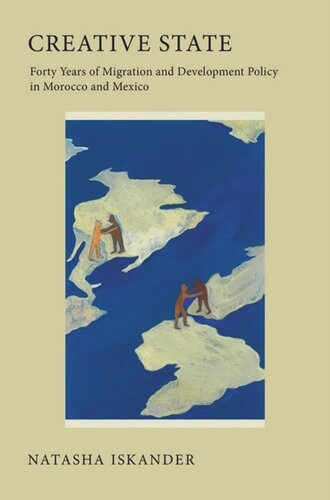

Most ebook files are in PDF format, so you can easily read them using various software such as Foxit Reader or directly on the Google Chrome browser.
Some ebook files are released by publishers in other formats such as .awz, .mobi, .epub, .fb2, etc. You may need to install specific software to read these formats on mobile/PC, such as Calibre.
Please read the tutorial at this link: https://ebookbell.com/faq
We offer FREE conversion to the popular formats you request; however, this may take some time. Therefore, right after payment, please email us, and we will try to provide the service as quickly as possible.
For some exceptional file formats or broken links (if any), please refrain from opening any disputes. Instead, email us first, and we will try to assist within a maximum of 6 hours.
EbookBell Team

0.0
0 reviewsAt the turn of the twenty-first century, with the amount of money emigrants sent home soaring to new highs, governments around the world began searching for ways to capitalize on emigration for economic growth, and they looked to nations that already had policies in place. Morocco and Mexico featured prominently as sources of "best practices" in this area, with tailor-made financial instruments that brought migrants into the banking system, captured remittances for national development projects, fostered partnerships with emigrants for infrastructure design and provision, hosted transnational forums for development planning, and emboldened cross-border political lobbies.
In Creative State, Natasha Iskander chronicles how these innovative policies emerged and evolved over forty years. She reveals that the Moroccan and Mexican policies emulated as models of excellence were not initially devised to link emigration to development, but rather were deployed to strengthen both governments' domestic hold on power. The process of policy design, however, was so iterative and improvisational that neither the governments nor their migrant constituencies ever predicted, much less intended, the ways the new initiatives would gradually but fundamentally redefine nationhood, development, and citizenship. Morocco's and Mexico's experiences with migration and development policy demonstrate that far from being a prosaic institution resistant to change, the state can be a remarkable site of creativity, an essential but often overlooked component of good governance.